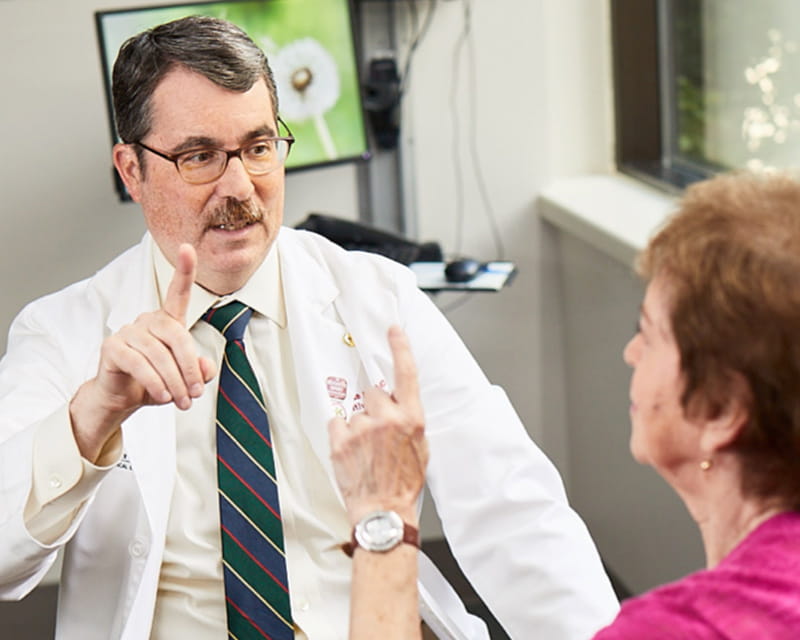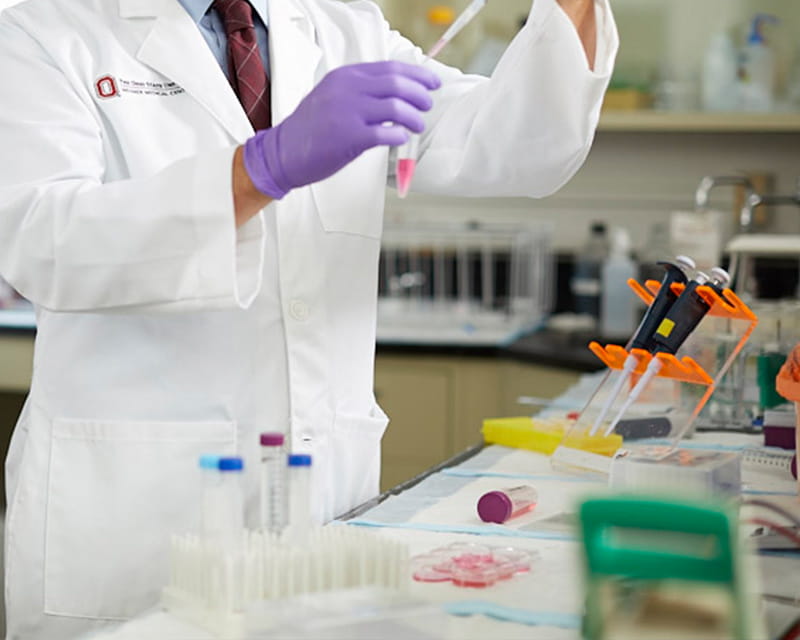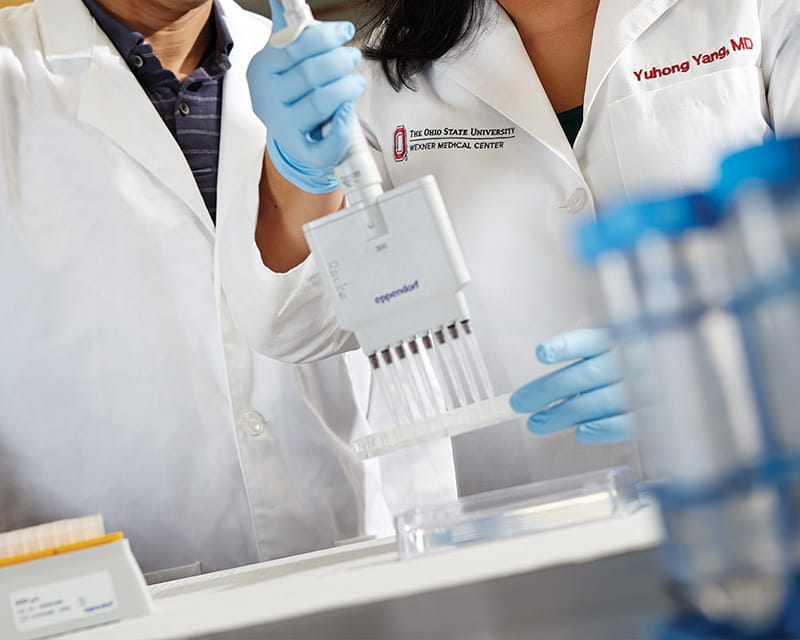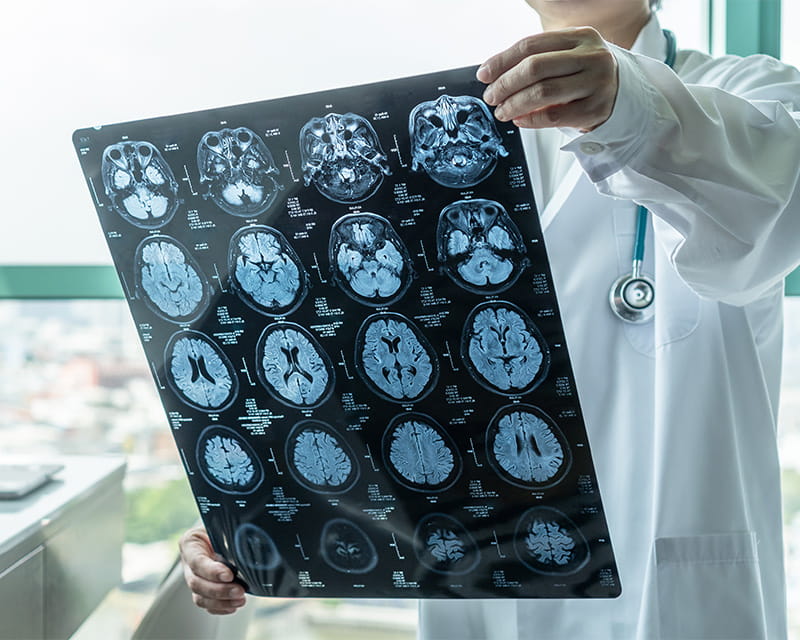
Ohio State researchers identify new biomarkers that differentiate Lewy body dementia from Alzheimer’s and Parkinson’s
 Led by genetic counselor Jennifer Roggenbuck, MS, LGC, a one-year grant awarded by the ALS Association is funding Ohio State’s formal development of national clinical guidelines for ALS genetic testing that will be used by health care centers nationwide. “We have cared for thousands of patients since opening our ALS/MND Clinic in the mid-1990s and have extensive experience with genetic testing,” says Roggenbuck. “We believe it’s extremely important to establish national testing standards, to ensure that all persons with ALS can benefit from genetic advances, and to fuel further research.”
Led by genetic counselor Jennifer Roggenbuck, MS, LGC, a one-year grant awarded by the ALS Association is funding Ohio State’s formal development of national clinical guidelines for ALS genetic testing that will be used by health care centers nationwide. “We have cared for thousands of patients since opening our ALS/MND Clinic in the mid-1990s and have extensive experience with genetic testing,” says Roggenbuck. “We believe it’s extremely important to establish national testing standards, to ensure that all persons with ALS can benefit from genetic advances, and to fuel further research.”
“Genetic testing and counseling directly benefits our patients,” explains clinic director Stephen J. Kolb, MD, PhD. “Genetic characterization of our patients also opens the door to research opportunities. In addition to formal genetic counseling, our clinic has an ALS Clinical Research Coordinator who meets with every patient to explain our basic science and clinical trial opportunities and answer any related questions. Our patient partnerships are a key factor in the size and scope of our research program. Because Ohio State is now among the largest ALS research sites in the country, we’re regularly asked to participate in or lead high profile National Institutes of Health (NIH) and foundation studies.”
“A major focus of our program is to connect the individuals that we serve in clinic to the critical research efforts that are happening in laboratories here at Ohio State as well as those throughout the world. One example of this is the development of individualized models of disease,” says Dr. Kolb. “We and our collaborators are able to biopsy a person’s skin cells and turn them into a type of stem cell that allow us to reproduce each patient’s exact ALS condition in the laboratory. We can then study the models to look for causes and develop therapies on a case-by-case basis.”
The ALS/MND Multidisciplinary Clinic and Research Program is part of Ohio State’s Neurological Institute, with one of the largest neuromuscular centers in the country, so there is an established team of multidisciplinary experts to help each patient, even those with unusual or difficult symptoms. The ALS/MND program is led by Kolb, a physician-scientist, and in addition to the full-time research coordinator, he is joined by a clinical neurologist, genetic counselor, clinical nurse practitioner, social worker and nutritionist, as well as physical, occupational, respiratory and speech therapists. The Ohio State Department of Neurology is a member of NeuroNEXT: Network for Excellence in Neuroscience Clinical Trials and a contributing member to the Northeast ALS Consortium (NEALS).

Ohio State researchers identify new biomarkers that differentiate Lewy body dementia from Alzheimer’s and Parkinson’s

Biomarker breakthroughs at Ohio State transform disease diagnosis, predictability and treatment

The Ohio State University Wexner Medical Center pushes boundaries for neurological care